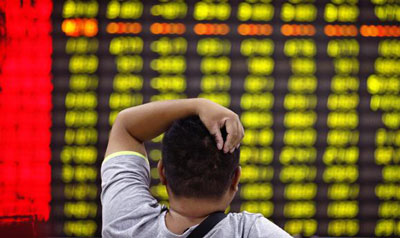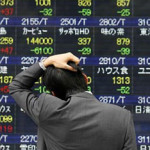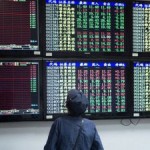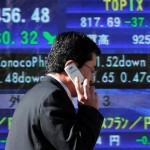A guide to China’s stunning stock market crash

In China, local stock markets, which rose to dizzying heights over the past year, plummeted back to Earth last week. They then rebounded sharply on Thursday and Friday, as the Chinese government worked to restore faith in the markets.
It has been called the biggest stock market bubble since the dot-com boom, and some say its effects could be bigger than the crisis in Greece. China represents more than 16 percent of the global economy, after all, while Greece is merely 0.38 percent. A guide to what’s unfolding:
1. What’s happening now?
China’s stock markets ended the week by rebounding strongly, with the Shanghai market rising 4.5 percent on Friday [local time].
But China’s two main stock exchanges are both down significantly since hitting a peak June 12. The Shanghai Composite Index has lost 25 percent of its value in less than a month, while the Shenzhen Composite Index has fallen 35 percent.
Altogether, more than $US3 trillion [$NZ4.4 trillion] in share value has evaporated since mid-June — more than the value of France’s entire stock market.
Still, both markets are up more than 80 percent from mid-2014. But the slide was enough to spook investors, companies and the government alike.
2. How has the government responded?
The Chinese government denounced the market movement as panic selling.
In response, it cut interest rates for the fourth time this year, paused new initial public offerings, capped short selling, changed the rules to allow pension funds and the social security fund to invest more in stocks, and ordered state-owned companies and controlling shareholders not to sell their shares. It changed the rules so investors can, for the first time, use their houses as collateral to borrow money to buy stocks.
Most significantly, it used a state-owned securities financing company to lend $42 billion to 21 brokerages so they could buy blue-chip stocks — on top of $20 billion that brokerages said they would buy over the weekend. As Gwynn Guilford of Quartz notes, taken together, China’s response was bigger than TARP, one of the US. government’s prime responses to the financial crisis.
3. How did we get here?
In just 12 months, China’s stock market climb created $6.5 trillion in value — enough to pay off Greece’s debt 20 times over. No other stock market has ever grown that much in dollar terms.
The boom has been fuelled by novice investors rushing into the market. Even Chinese farmers are giving up tending their fields to tend their stocks.
Although the stock market has surged, the Chinese economy has begun to slump. The Chinese economy grew 7 percent year over year in the first quarter, its slowest pace since 2009. Imports plummeted 18.1 percent in May.
4. What role does lending play?
One way money has flowed into the stock market is through margin lending, where brokers lend their clients money to buy stocks. The rise in margin lending has deeper roots: the huge expansion in money in China after years of interest rate cuts and easy monetary policy.
As Scott Kennedy of the Centre for Strategic and International Studies has noted, “Over a quarter of China’s stock market capitalisation is now supported through margin financing, turning an equity market into a de facto debt market.”
5. What about the property market?
Property has long been a primary store and generator of wealth for the Chinese middle and upper classes, because the country’s underdeveloped financial sector offers few investment opportunities. Selling land to property developers has also been a primary source of funding for most city and village governments, which mostly don’t have the authority to levy their own taxes or issue bonds. Mckinney has estimated that, excluding the financial sector, almost half of China’s debt is directly or indirectly related to real estate, about $9 trillion.
When the property market started to slump in late 2014, it put much of the country’s wealth at risk. Morgan Stanley Economist Andy Xie compared the Chinese stock and property markets to a horror movie: “People like to watch, but don’t want to be in it.”
6. What are the risks?
Analysts say that the Chinese government’s repeated pledges to boost the market and subsequent failures to do so could damage its credibility and lead to a crisis of confidence.
Some investors will lose their savings. Because foreigners own such a small percentage of stocks, the possibility of contagion outside the market is low.
The bigger risk lies in the debt that investors and companies have borrowed. A dip in prices in China could spark an even bigger sell-off, as investors sell stock to pay their brokers. Some Chinese companies have even pledged their own shares as collateral for bank loans — meaning that, if their share price falls enough, they may default. This leverage could threaten the stability of banks and brokerage firms.
Source: stuff.co.nz – A guide to China’s stunning stock market crash





























